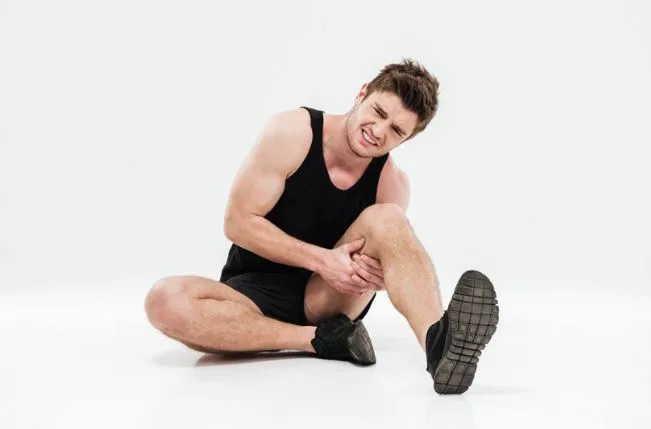Managing Dislocated Shoulders: Prevention And Recovery
Category: Orthopedics
Shoulder dislocations are a common injury that can affect anyone, from athletes to individuals engaging in everyday activities. While the condition may seem daunting, understanding its causes, prevention strategies, and recovery options can significantly reduce its impact. At Lokmanya Hospitals, we aim to guide you through comprehensive care for dislocated shoulders with expert advice and treatment plans tailored to your needs.
Understanding Shoulder Dislocation
The shoulder joint, a ball-and-socket mechanism, offers remarkable mobility but is prone to instability. A dislocated shoulder occurs when the ball (humeral head) slips out of the socket (glenoid). This can happen due to:
- Trauma or Injury: Sports accidents or falls are common causes.
- Overuse: Repetitive shoulder movements can weaken stabilizing tissues.
- Structural Instability: Genetic predispositions or previous injuries can increase the risk.
Symptoms include intense pain, visible deformity, swelling, and restricted movement.
Prevention: Keeping Shoulders Stable
Prevention is always better than cure. Here's how you can protect your shoulders:
1. Strengthening Exercises:
Engage in exercises that target shoulder muscles, including the rotator cuff and deltoids. Strong muscles provide better joint support.
2. Proper Technique in Activities:
Whether in sports or lifting heavy objects, using the correct technique minimizes strain on the shoulders.
3. Protective Gear:
Athletes should consider wearing shoulder pads during high-impact sports to prevent injuries.
4. Stay Flexible:
Incorporate stretching into your routine to maintain joint flexibility and reduce stiffness.
5. Avoid Overuse:
Rest between intensive activities to allow the shoulder to recover and prevent wear and tear.
Recovery: Restoring Strength and Function
If you’ve experienced shoulder dislocation, proper recovery is essential for restoring mobility and preventing recurrence.
1. Immediate Treatment
- Seek Medical Help: Never attempt to pop the shoulder back into place on your own.
- Immobilization: A sling or brace may be used to stabilize the shoulder.
- Pain Management: Anti-inflammatory medications and ice packs help reduce pain and swelling.
2. Rehabilitation Therapy
- Physical Therapy: Guided exercises restore mobility and strengthen muscles around the shoulder joint.
- Gradual Return to Activity: Avoid rushing back into activities to prevent re-injury.
3. Advanced Interventions at Lokmanya Hospitals
- Arthroscopic Surgery: Minimally invasive procedures can repair damaged tissues.
- Comprehensive Care Plans: Our team of orthopedic experts customizes treatments to suit individual recovery goals.
Why Choose Lokmanya Hospitals for Shoulder Care?
At Lokmanya Hospitals, we pride ourselves on delivering top-notch orthopedic care. Our state-of-the-art facilities and experienced specialists ensure effective diagnosis, treatment, and recovery plans for shoulder dislocations. From advanced imaging techniques to tailored rehabilitation programs, we are with you every step of the way.
Conclusion
Shoulder dislocations can be painful, but with the right prevention strategies and recovery methods, you can regain full function and live pain-free. Lokmanya Hospitals is here to guide you through every phase of care, ensuring the best outcomes for your shoulder health.
For expert advice and treatment, book an appointment with Lokmanya Hospitals today and take the first step toward shoulder stability and strength.
FAQ’s
1. What are the common causes of shoulder dislocation?
Shoulder dislocations typically occur due to trauma or injury, such as sports accidents or falls. Overuse from repetitive shoulder movements and structural instability due to genetic factors or previous injuries can also increase the risk.
2. How can I prevent a shoulder dislocation?
Prevention strategies include strengthening exercises targeting the rotator cuff and deltoid muscles, using proper technique during activities, wearing protective gear in high-impact sports, staying flexible with regular stretching, and avoiding overuse by allowing the shoulder time to recover.
3. What should I do immediately after dislocating my shoulder?
If you suspect a shoulder dislocation, avoid attempting to pop the shoulder back into place. Seek medical help immediately. Your doctor will immobilize the shoulder with a sling or brace and recommend pain management options like anti-inflammatory medications and ice packs.
4. What is the recovery process for a dislocated shoulder?
Recovery typically involves immobilization, followed by physical therapy to restore mobility and strengthen the shoulder. Gradual return to activity is recommended to prevent re-injury. For severe cases, advanced interventions like arthroscopic surgery may be necessary.
5. How long does it take to recover from a dislocated shoulder?
The recovery time can vary depending on the severity of the injury. Generally, it may take a few weeks to a few months for full recovery, depending on rehabilitation progress and whether surgery is required.
6. Why should I choose Lokmanya Hospitals for shoulder dislocation care?
Lokmanya Hospitals provides comprehensive orthopedic care with advanced imaging techniques, personalized treatment plans, and expert specialists. Our focus is on delivering effective diagnosis, treatment, and rehabilitation for shoulder dislocations to ensure the best outcomes for your recovery.






